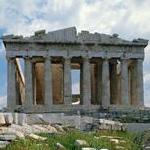 Donald Rumsfeld has a way with words that is both simple and insightful. Obviously, not everyone’s valued his intelligence over the years. From what we gather, they called him Ronald Dumbsfeld when he worked for the Nixon administration.
Donald Rumsfeld has a way with words that is both simple and insightful. Obviously, not everyone’s valued his intelligence over the years. From what we gather, they called him Ronald Dumbsfeld when he worked for the Nixon administration.
This name calling never seemed to bother Rumsfeld one bit. “If you try and please everybody,” he once remarked, “somebody’s not going to like it.” Naturally, in a world full of frauds and cheats, this is the sort of keen acumen we appreciate.
We hadn’t heard much of Rumsfeld since he left public office. So we were pleasantly delighted when we happened across his annual letter to the Internal Revenue Service, published earlier this week. Inside were several well placed gems to marvel over…
“The tax code is so complex,” writes Rumsfeld, “and the forms are so complicated, that I know that I cannot have any confidence that I know what is being requested and therefore I cannot and do not know, and I suspect a great many Americans cannot know, whether or not their tax returns are accurate.
“This note is to alert you folks that I know that I do not know whether or not my tax returns are accurate.”
Unknown Unknowns
Could this have been said any better? Moreover, it reminded us of a significant Rumsfeld deduction, which, while not likely its intent, offers more insights into business and investing than an MBA program at a top university.
“There are known knowns. These are things we know that we know,” elaborated Rumsfeld while Secretary of Defense. “There are known unknowns. That is to say, there are things that we know we don’t know. But there are also unknown unknowns. There are things we don’t know we don’t know.”
Where investors are concerned, known knowns include facts like the historic mean for stock share valuations. These are like a lighthouse to a sailor…alerting him to when his approach is charting off course.
Known unknowns, in addition to IRS forms, are things like what direction the stock market will move tomorrow or the next day. We know we don’t know if Google shares will rise or fall. The best we can do is hold a licked index finger up to the wind and invest accordingly.
Identifying known knowns and known unknowns are critical to investing success. They can help to understand risk and determine how to go about managing it. Still, no system is fool proof…
The Next Big Crisis Moment You Can Bank On
Not when there’s what Rumsfeld calls unknown unknowns beyond the horizon. The fat tail – black swan – events, no one can predict. Things we don’t know we don’t know.
For example, no one knew Gavrilo Princip, with the exception of Princip and his accomplices, was going to shoot Archduke Franz Ferdinand of Austria and his wife, Sophie, Duchess of Hohenberg, on the northern end of the Latin Bridge in Sarajevo on June 28, 1914. Prior knowledge of the coming event was unknown for practically everyone. Yet not even Princip knew his actions would uncork the pent-up animosities of Europe and usher in the destruction of World War I.
What will be the next unknown unknown?
Will it be another Lehman moment, 9/11, Fukushima – or worse? Will it come from China, the Ukraine, Mother Nature, or, perhaps, Puerto Rico?
By definition, we don’t know. We are mere mortals. Like you, we do not have the ability to read tomorrow’s headlines today. But we do have known knowns and known unknowns to guide us. What we mean is, we do know there will be another crisis moment. We also know that it will be a big one.
You can bank on it.
Sincerely,
MN Gordon
for Economic Prism
Return from The Next Big Crisis Moment you Can Bank On to Economic Prism




